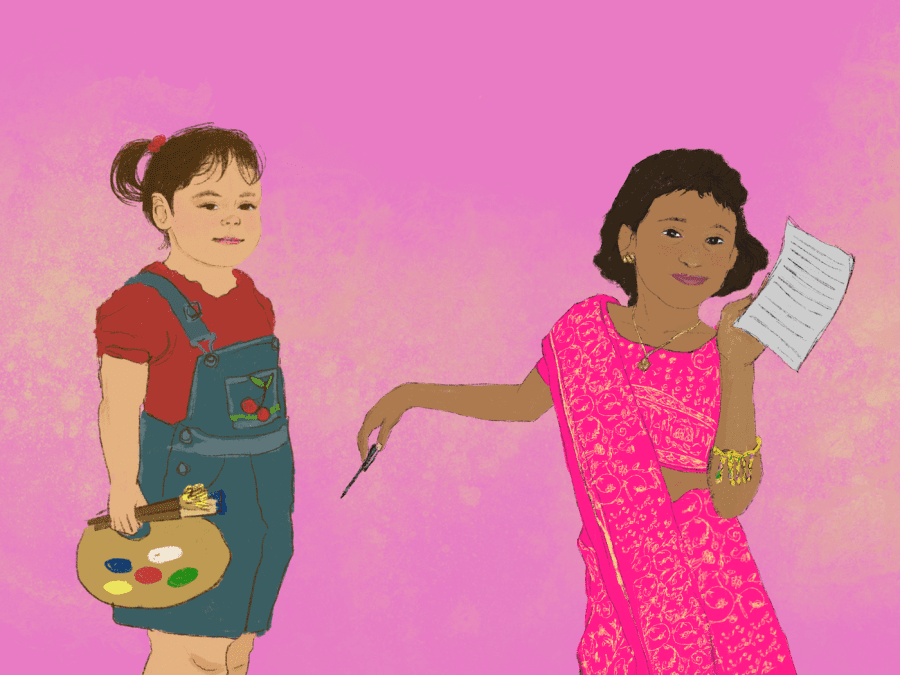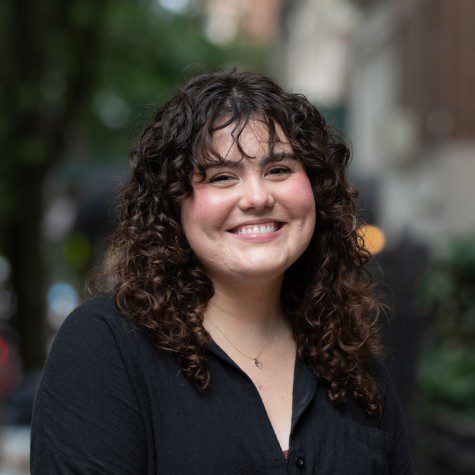I think a lot about a story my parents told me a few times when I was younger: my toddler-aged brother was walking down the beach with my dad when he spotted a street vendor selling ice cream — my brother had never tried it. But my mom made the Cuban equivalent of around $10 a month, and they desperately needed a new blender. It was in my brother’s best interest, of course — you couldn’t exactly go buy sweet potato Gerber at the non-existent supermarket, so they had to make his food from scratch. I don’t remember how much the ice cream was; I just remember that the cost was far too much and my dad knew he needed to save the money for more important things.
He bought my brother the ice cream anyway.
I’m not sure why the ice cream story stuck with me, but it’s not the only one. I grew up hearing about the myriad items my parents had to make themselves, and the process that led to them wasn’t always as deceptively simple as buying a blender: clothes, houses and a boat to leave the country with.
I was born in the United States, where things like ice cream aren’t considered a luxury. Years before I was even born, my parents spent hours crouching behind beachside shrubbery with my three-year-old brother. They waited for authorities to leave, getting bitten by mosquitoes, before spending what I can only imagine felt like forever on a dark boat in open water, anxiously awaiting the sight of land. Like most immigrant parents, this was all in the name of giving their children and future generations a better life — and like many immigrant children, I have a hard time believing I’m fulfilling their idea of that “better life.”
My mom is a pediatrician, but she’s never forced me to follow in her footsteps or pursue some other equally prestigious field. My dad stayed home with us most of the time, helping my mom out in many ways other than financially. This undeniably altered my perception of gender roles and traditional household structures, which, in turn, made me more receptive to the unconventional. For me, this sense of the unconventional meant an interest in art far beyond coloring books and construction paper crafts in elementary school art class.
In kindergarten, I would draw multicolored mermaids for my classmates. At around seven, I would hand-sew miniature pillows and blankets for my dolls and stuffed animals — I had a small red, yellow and blue suitcase filled to the brim with scrap fabric and loose buttons left over from my mom’s sewing projects. I spent my childhood hand-making cards and trying every artsy hobby under the sun, from air dry clay to beaded jewelry to cake decorating, all thanks to the fact that my mom never turned down a trip to Michaels.
I’ve always been academic, and, weirdly, that’s part of the problem. I took an art class every year of high school, sometimes multiple if I had a free period. A vivid memory of my aunt leaning over the kitchen counter one day around then is seared into my brain, telling me I was too smart to study art. It hadn’t even occurred to me as a possibility yet; when I got to the age where your family starts to ask what you want to study in college, I had arbitrarily decided on psychology. I liked it, sure, but I didn’t love it — it just sounded better than “I think I want to paint portraits for my entire life.”
I love my mom, and I would never choose another one, but if there’s such a thing as “soul-parents” the way there are soulmates, Mrs. Massolio was mine. She was my art teacher for four years, and she was the reason I didn’t end up choosing a career I would regret for the rest of my existence. My parents have always been supportive, and I know they will continue to be supportive even if I shred my BFA and decide I want to be a pastry chef. It wasn’t really about that, though. I think it just meant something different to me that someone who wasn’t obligated to love me unconditionally saw the same future for myself that I did and actually thought I would be successful.
So, I went to art school, and I’m going to graduate next semester, but I still feel guilty about it. I know it’s nonsensical given the circumstances, and probably something I should unpack with a licensed professional and not a word document, but I can’t help it. I still don’t know what I want to do for the rest of my life, and even though I know painting portraits would be enough for my parents and it would’ve been enough for Mrs. Massolio, I’m not so sure that it’s enough for me.

























































































































































